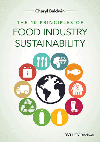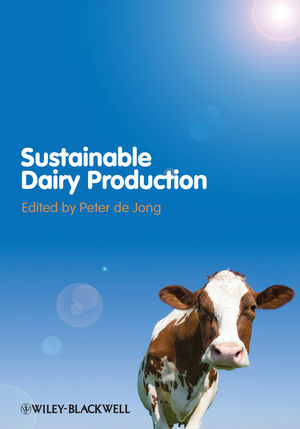IDFA issues environmental sustainability trade principles
The association urges the U.S. government to proactively protect U.S. dairy trade.

The International Dairy Foods Association (IDFA) said it issued the industry’s first-ever “U.S. Dairy Trade Principles on Environmental Sustainability,” a critical and proactive step as the global community rallies around climate change and initiatives begin to impact international trade.
Washington, D.C.-based IDFA, which represents more than 3 million U.S. jobs in small-, medium- and large-sized dairy manufacturing and retail companies, urges the Office of the U.S. Trade Representative and USDA to use these trade principles to ensure the U.S. dairy industry is represented in the Biden administration’s sustainability-focused trade agenda.
IDFA members are already making significant progress toward achieving measurable, science-based environmental sustainability outcomes that benefit consumers and the planet. These principles support that progress and the industry’s trade interests by establishing a set of obligations for U.S. trading partners, IDFA said. This policy blueprint urges alignment of the environmental sustainability requirements with existing World Trade Organization (WTO) obligations and that they follow the most advanced science and promote innovation.
“IDFA and its members share the objectives of the Biden administration and the global community that the environmentally sustainable production and consumption of dairy products is a priority,” said Michael Dykes, D.V.M., IDFA president and CEO. “We call on the U.S. government to proactively establish these guidelines to ensure market access is protected and to make certain that the U.S. is competing on equal footing. U.S. leadership is critical on these issues, and IDFA calls on the Biden administration to pursue trade policy in a manner that gives U.S. dairy’s sustainability efforts fair weight at the negotiating table.”
IDFA said its “U.S. Dairy Trade Principles on Environmental Sustainability” include:
- Review Prior to Regulating.
- No Prohibition of Goods.
- Measures Based on Actual Performance.
- Non-Discriminatory, Non-Trade Restrictive Measures.
- Limitations on Taxation and Tariffs.
- Voluntary Measures Related to Consumer Information.
- Use of International Standards and Metrics.
- Outcome-Based, Not Prescribed.
- Science- and Risk-Based.
- Ensure Continued Innovation.
- Take Regional Conditions into Account.
- Sectoral Appropriateness and Flexibilities.
- Promulgation through Good Regulatory Practices.
“President Biden and Ambassador Tai have made it clear in their agendas published to date that sustainability is and will increasingly be an area of policy focus, particularly in the context of trade,” said Becky Rasdall, IDFA’s vice president, trade policy and international affairs. “Since it is uncommon for experts in our industry to be specialized in both trade and sustainability, we wanted to proactively help connect those two sides of our industry for our government colleagues.
“We recognized an immediate need to put the industry’s strong efforts on sustainability into the language of our government’s trade negotiators and have worked with our members to develop these 13 principles,” she continued. “We believe they will position our negotiators for success by prioritizing the kinds of trade policies that will build upon U.S. dairy’s existing sustainability initiatives.”
View the full list of IDFA’s “U.S. Dairy Trade Principles on Environmental Sustainability” and the letters sent to the Office of the U.S. Trade Representative and USDA here.
Looking for a reprint of this article?
From high-res PDFs to custom plaques, order your copy today!








